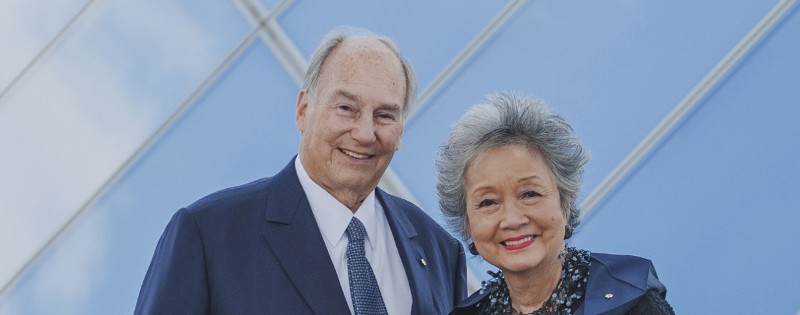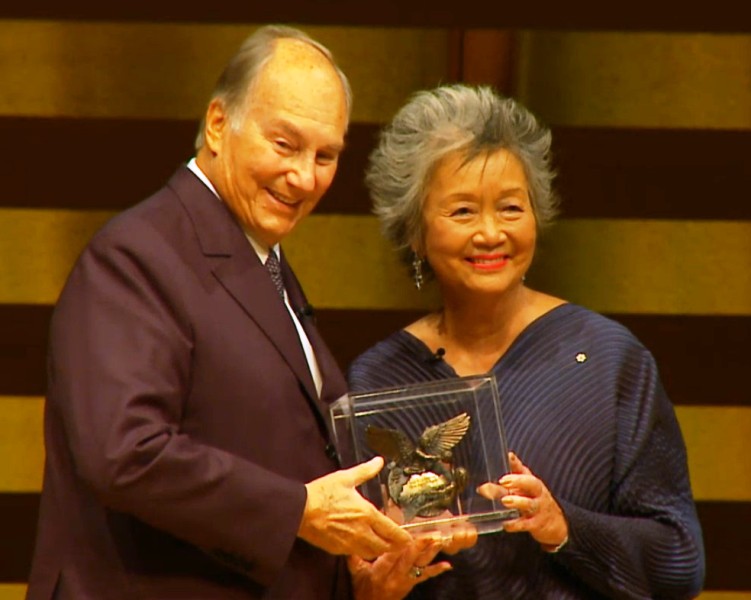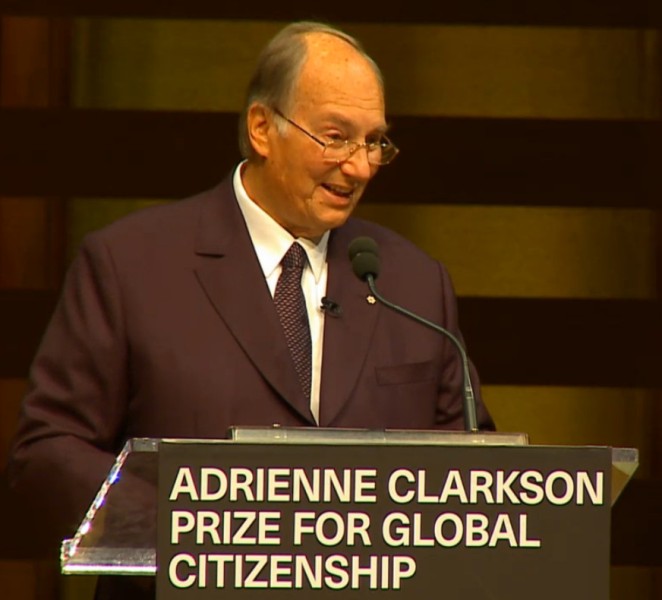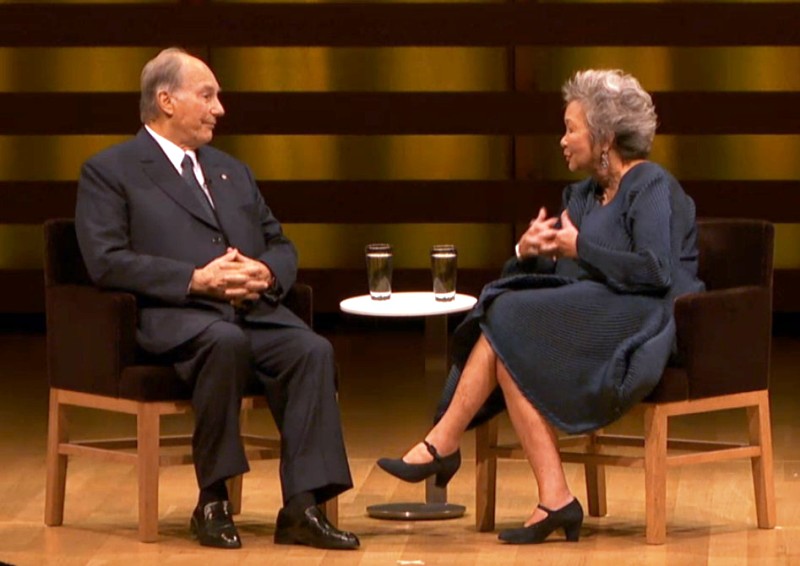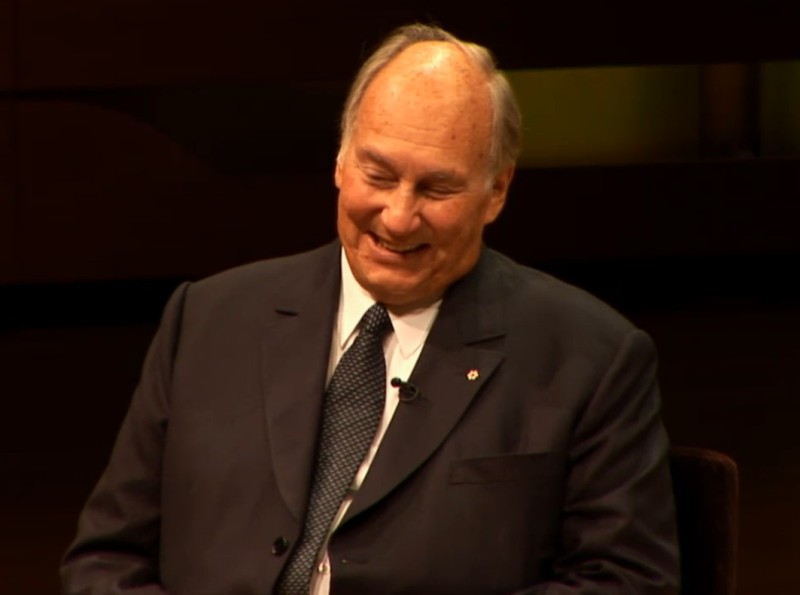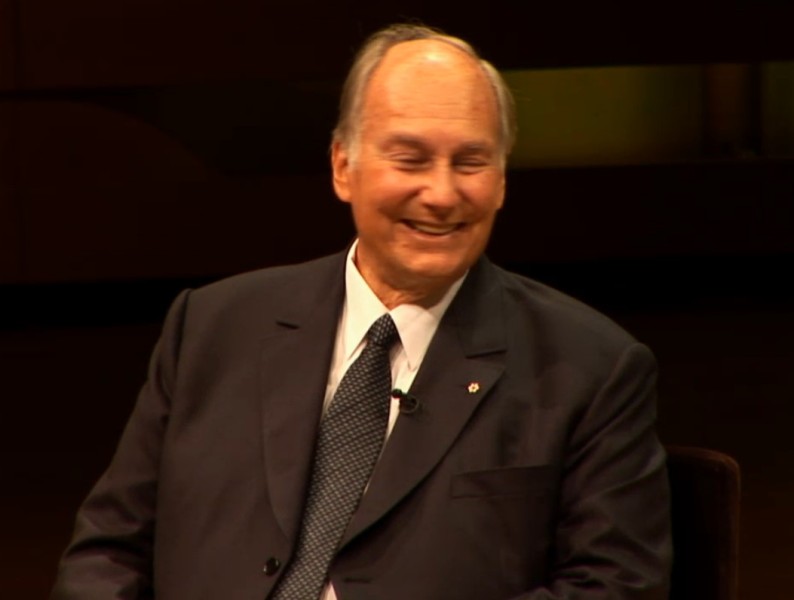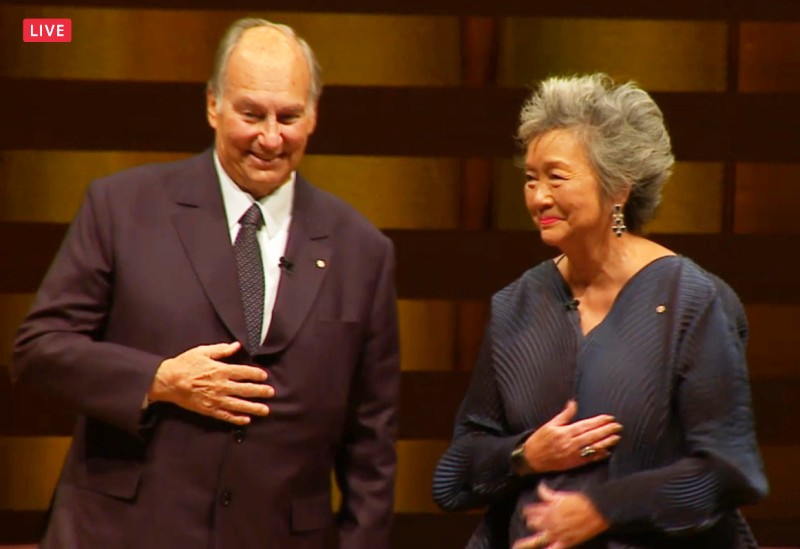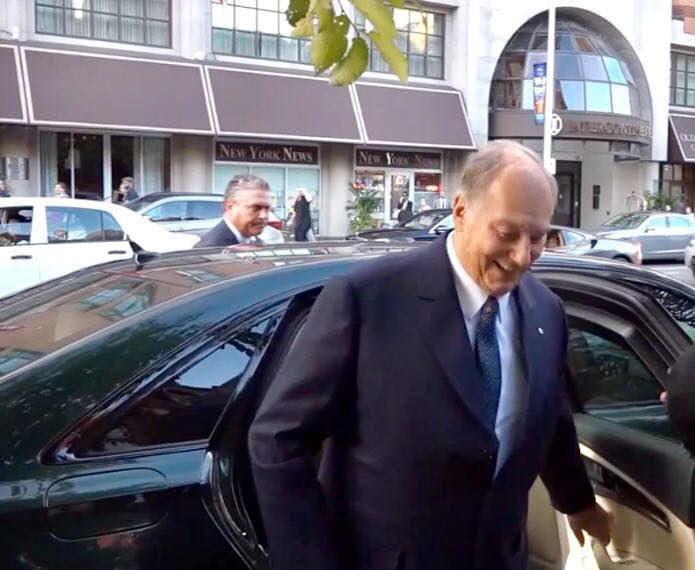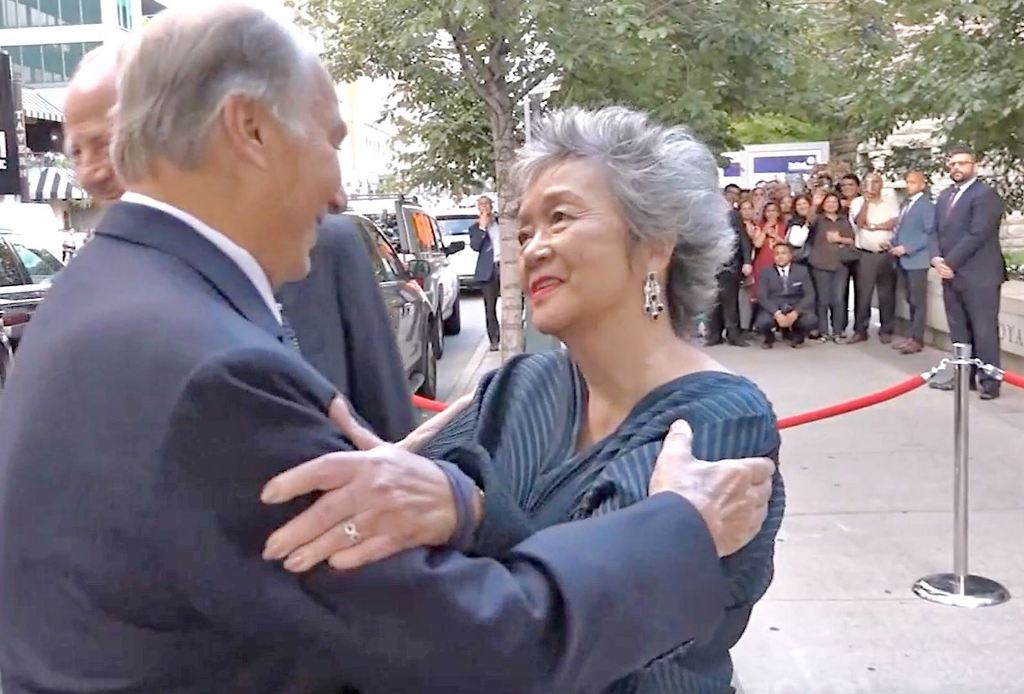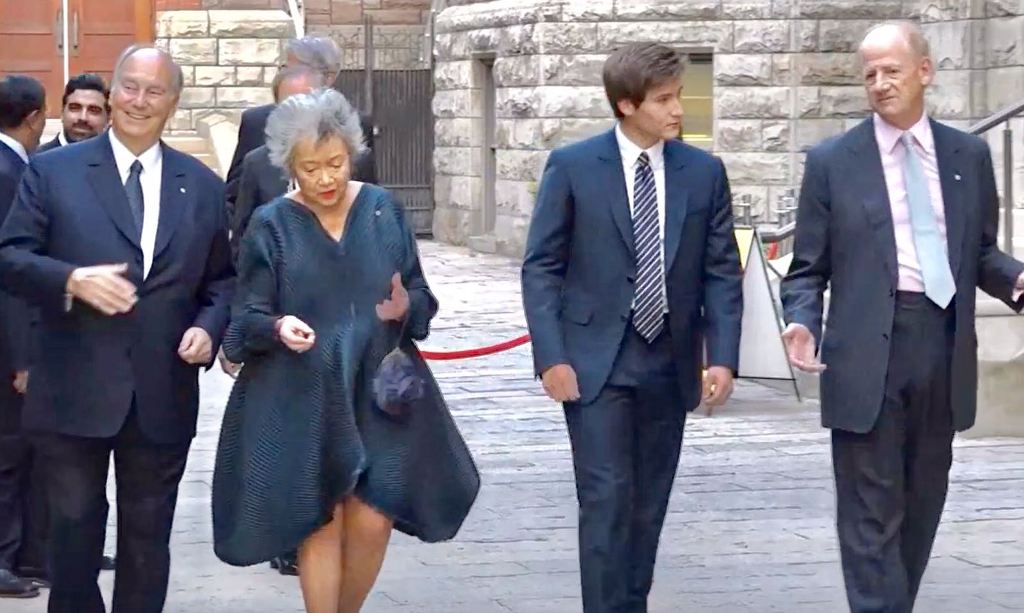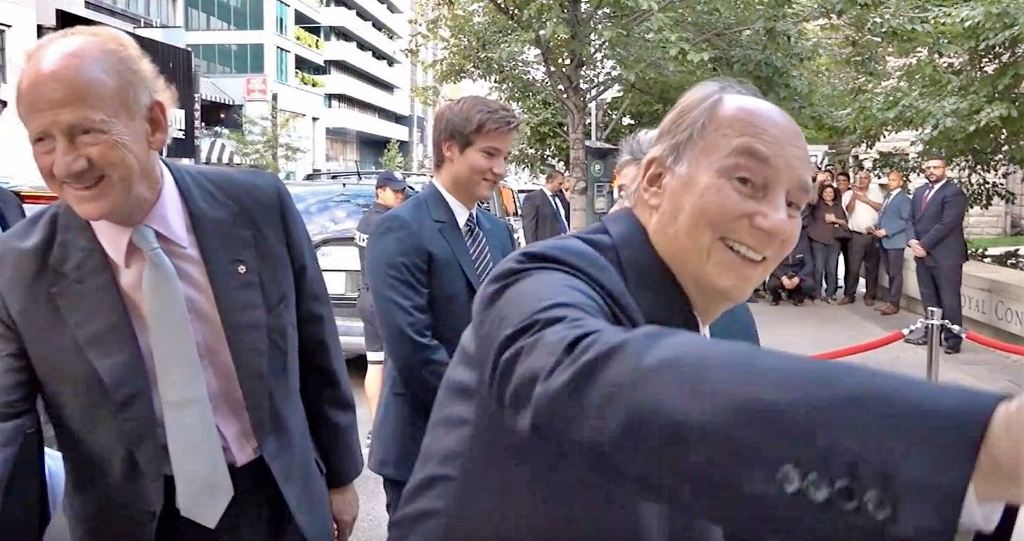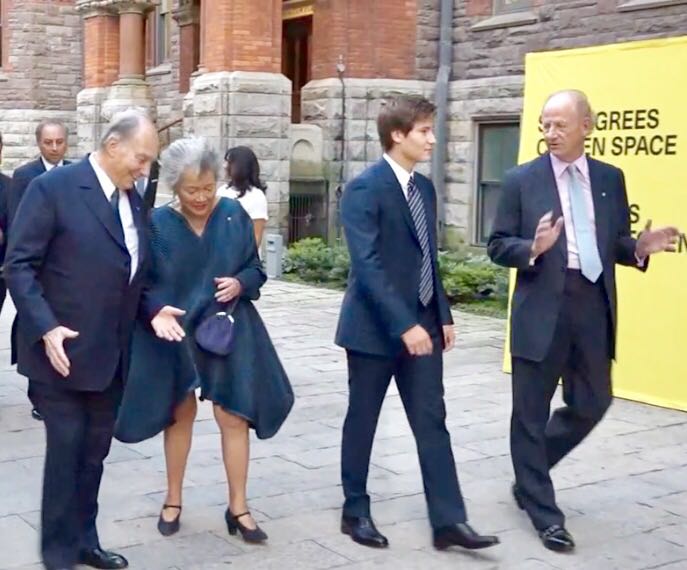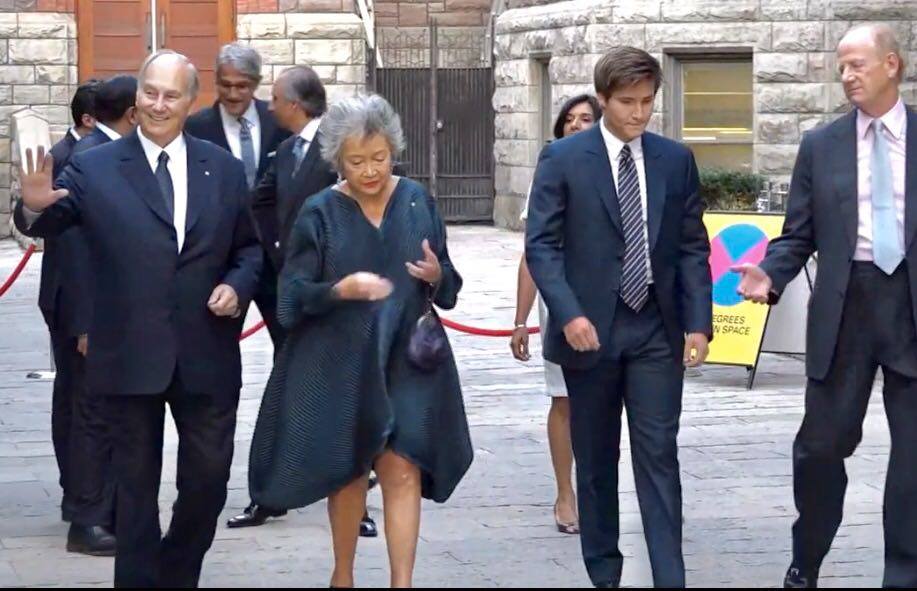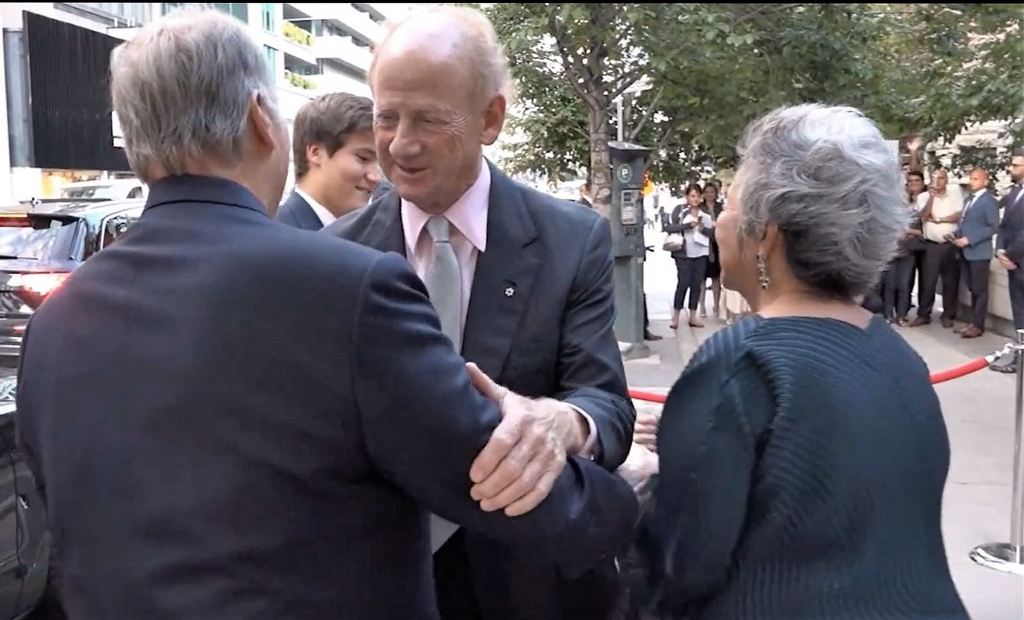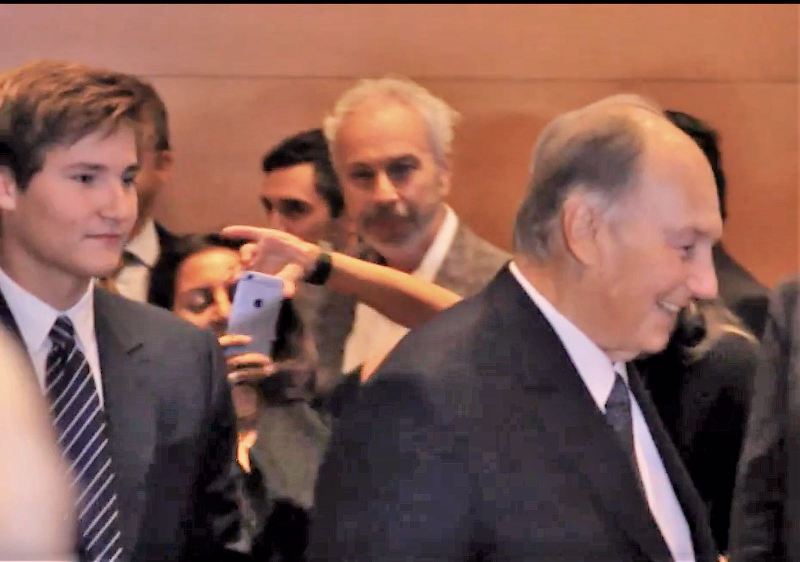http://www.akdn.org/speech/his-highness ... itizenship
Accepting the Adrienne Clarkson Prize for Global Citizenship
SPEECH DELIVERED BY His Highness the Aga Khan
Toronto, Canada (21 September 2016)
Bismillah-ir-Rahman-ir-Rahim
Madame Adrienne Clarkson
Dr. John Ralston Saul
Premier Kathleen Wynne
Madame Reid, First Lady of Iceland
Your Honour Elizabeth Dowdeswell
Your Worship John Tory
Ministers
Distinguished Guests
Ladies and Gentlemen
This is a deeply memorable moment for me. My warmest thanks go to Adrienne Clarkson, John Ralston Saul and the Institute for Canadian Citizenship for this wonderful Award, and to all of you for sharing in this important moment in my life.
Imagine the honour one feels - to receive an Award named after Adrienne Clarkson, presented by Adrienne Clarkson, and dedicated to the ideals of which Adrienne Clarkson is such a leading example.
As you know, Madame Clarkson has experienced, in her own life, what the concept of Global Citizenship really means. Arriving as a two-year old refugee from outside Canada, she became a Canadian citizen in the fullest and best sense. And she also became an extraordinary advocate for what Global Citizenship truly means. In so many roles over so many years, as a thoughtful journalist and broadcaster, as Canada’s distinguished Governor General, and as a forceful national matriarch, she has continually been reaching out to diverse peoples in Canada, and around the world, not only in eloquent words but also in decisive action.
Madame Clarkson ne s'est pas contentée d'être une amie et une inspiratrice ; elle a aussi été pour moi un partenaire pour qui j'ai la plus grande estime. Sa contribution aux travaux de notre Réseau de Développement a été marquée par son mandat d'Administratrice du Centre Mondial du Pluralisme à Ottawa, l'un des nombreux projets collaboratifs dans lesquels mes institutions, avec une profonde reconnaissance, se sont engagées aux côtés du gouvernement canadien.
One might say that to receive an Award for Global Citizenship from Adrienne Clarkson is a bit like receiving an Excellence in Hockey Award from Wayne Gretzky!
As for the concept of Global Citizenship, that was something I began to think about seriously when I became the Imam of the Ismaili Muslims almost 60 years ago. Happily, I was able to share my thinking about Global Citizenship with the dedicated people of the Aga Khan Development Network - with whom I want to share this honour today. What we learned from the very start was that advancing our development agenda, we would be required to respect the immense diversity of ethnicities, of languages and of cultures, of faiths, of philosophies. In short, we learned to embrace the values of Global Citizenship.
As we discuss this concept, and the spirit of Pluralism on which it rests, it is only realistic, in my view, to acknowledge an increasing frustration concerning the pluralism story. We talk sincerely about the values of diversity, about living with complexity. But in too many cases more diversity seems to mean more division; greater complexity, more fragmentation, and more fragmentation can bring us closer to conflict.
The stakes seem to be getting higher as time goes by, but so do the obstacles. And that is why I will focus my brief remarks today on the continuing challenges to the ideals of Global Citizenship.
One enormous challenge, of course, is the simple fact that diversity is increasing around the world. The task is not merely learning to live with that diversity, but learning to live with greater diversity with each passing year.
One aspect of this changing reality is the challenge of human migration. More people are moving, willingly and unwillingly, across national frontiers than ever before. In country after country, the migration question is a central issue of political life. Often it is THE central issue. And old habits of mind, including narrow, exclusionary definitions of citizenship, have not met the challenge.
That was true three months ago when Great Britain voted to leave the European Union. It is true in pre-election debates in France, where I now live, and in the United States, where I went to university. It is true in Canada, as you well know, though Canada has certainly been a world leader in expanding the concept of citizenship. But the challenge is felt everywhere. Nor is the migration challenge likely to dissipate any time soon, especially as war, and violence, and economic deprivation, displace more and more people.
In such a world, the “Other” is no longer a distant someone whom we encounter primarily in the pages of a magazine, or on a video screen, or an exotic holiday trip. The “Other” increasingly is someone who appears in what we think of as “our space”, or even, “in our face.” And that reality can be hard to handle.
When the Other is seen as a potential competitor, for a job for example, even when this fear is unfounded, then the challenge of pluralistic attitudes becomes even more difficult. For those who feel insecure, it is tempting to look for scapegoats, for someone to blame, when their self-esteem seems threatened. Often, we then find it easier to define our identity by what we are against, than by what we are for.
Such fears may be culturally based, or economically driven, or psychologically rooted. But they should not be underestimated. And they will not be driven away by nice sounding words proclaiming lofty ideals.
This is why I would emphasize, as Adrienne Clarkson has always done, our responsibility to improve the quality of life in places throughout the world where that quality is unsatisfactory - fighting poverty, improving health and education, expanding opportunity - as the first manifestation of a healthy pluralistic ethic. Pluralism means responding to diversity not only at home, but on a global basis, creating genuine “visions of opportunity” wherever constraints or reversals are in the air.
But the growing challenge to pluralistic values does not happen only when people move physically from one place to another. As new technologies shrink the planet, distant forces become dire threats. We worry about the perils of environmental degradation, for example, including the spectre of climate change. We see how every local economy can be affected by distant economies. We realize how dangerous forces can spread across national borders - deadly diseases, or deadly weaponry, criminal networks or terrorist threats. And often, the human impulse is not to work across borders to meet these dangers, but to withdraw from a threatening world.
One element that complicates this challenge is the way in which we communicate with our global neighbours. We think sometimes that the new technologies can save us. If we can connect faster, at lower cost, across greater distances, with more people, just think what could happen! We would all learn more about one another and perhaps understand one another better. But I am not sure that things are working out that way. The explosion of available information often means less focus on relevant information, and even a surfeit of misinformation. Thoughtful leadership often gives way to noisy chatter.
Media proliferation is another challenge: what it often means is media fragmentation. Many now live in their own media bubbles, resisting diverse views. New technologies can make communication seem easier, but they can also make pluralism much more difficult.
Yet another dimension of the challenge has to do with the realities of human nature. We often hear in discussions of Global Citizenship that people are basically alike. Under the skin, deep in our hearts, we are all brothers and sisters - we are told - and the secret to a harmonious world is to ignore our differences and to emphasize our similarities.
What worries me, however, is when some take that message to mean that our differences are trivial, that they can be ignored, and eventually erased. And that is not good advice. In fact, it is impossible. Yes, our understanding and our underlying humanity should motivate our quest for healthy pluralism. But such a quest must also be built on an empathetic response to our important differences. And that, again, is a point which Adrienne Clarkson has emphatically articulated.
Pretending that our differences are trivial will not persuade most people to embrace pluralistic attitudes. In fact, it might frighten them away. People know that differences can be challenging, that disagreements are inevitable, that our fellow-humans can sometimes be disagreeable. As Madame Clarkson has famously said, and I am quoting her here: “the secret to social harmony is learning to live with people you may not particularly like.”
My fear is that talking only about our common humanity might seem to threaten people’s distinctive identities. And that can complicate the challenge of pluralism.
Who am I? Qui suis-je? We all must pose that question. Answers will grow out of basic loyalties - to family, faith, community, language, which provide a healthy sense of security and worth. But if the call for pluralism seems to dilute those old loyalties, then that new call may not be effective. Embracing the values of Global Citizenship should not mean compromising the bonds of local or national citizenship. The call of pluralism should ask us to respect our differences, but not to ignore them, to integrate diversity, not to depreciate diversity.
The call for cosmopolitanism is not a call to homogenization. It means affirming social solidarity, without imposing social conformity. One’s identity need not be diluted in a pluralistic world, but rather fulfilled, as one bright thread in a cloth of many colours.
When Adrienne Clarkson gave the Massey Lectures on CBC two years ago, she used a phrase that became her book’s title: “Belonging, the Paradox of Citizenship.” The word “paradox” expresses precisely the challenge I have been discussing.
Perhaps the key to resolving the Paradox of Citizenship is to think about layers of overlapping identity. After all, one can honour a variety of loyalties - to a faith, an ethnicity, a language, a nation, a city, a profession, a school, even to a sports team! One might share some of these identities with some people, and other identities with others.
My own religious community identifies proudly as Ismaili Muslims, with our specific interpretation of Islamic faith and history. But we also feel a sense of belonging with the whole of the Muslim world, what we call the Ummah. Within the Ummah, the diversity of identities is immense - greater than most people realize - differences based on language, on history, on nationhood, ethnicity and a variety of local affiliations. But, at the same time, I observe a growing sense within the Ummah of a meaningful global bond.
When the question of human identity is seen in this context, then diversity itself can be seen as a gift. Diversity is not a reason to put up walls, but rather to open windows. It is not a burden, it is a blessing. In the end of course, we must realize that living with diversity is a challenging process. We are wrong to think it will be easy. The work of pluralism is always a work in progress.
Some of that work will be done in our schools. What I have called the Cosmopolitan Ethic is not something that we are born with, it is something that must be learned. Similarly, the Institute for Canadian Citizenship, under the inspirational leadership of Adrienne Clarkson and John Ralston Saul, has been working to give people who are new to Canada a sense of belonging. But this process does not simply take care of itself. It requires planning, it requires persistence and ever-fresh thinking. It is work that is never finished.
Finally, advancing the cause of Global Citizenship is not only a matter of building healthy, diversified societies, but also of maintaining them. Inevitably, new challenges will arise. Canada’s Chief Justice, the Right Honorable Beverly McLachlin, spoke of such challenges last year when she delivered the annual Lecture for our Global Centre for Pluralism. She spoke of how a cosmopolitan society needed, continually, to sort out the balance between healthy diversity and social cohesion. To do that well, she said, required a respect for human dignity, strong legal institutions, and a pluralistic institutional environment.
For me, that latter strength implies a broadly diversified civil society - a healthy array of private organizations that are dedicated to public purposes. For pluralism to thrive will require the successful integration of diverse institutions and diverse leadership.
These are just a few thoughts as I look to the future of Global Citizenship. The challenges, in sum, will be many and continuing. What will they require of us? A short list might include these strengths: a vital sense of balance, an abundant capacity for compromise, more than a little sense of patience, an appropriate degree of humility, a good measure of forgiveness, and, of course, a genuine welcoming of human difference.
It will mean hard work. It will never be completed. But no work will be more important.
Thank you.
AUDIO of the Speech of H.H. The Aga Khan at the Global Citizenship Ceremony on 21 September 2016 in Toronto, Canada
http://ismaili.net/timeline/2016/2016-0 ... -audio.m4a
